Spoiler Review - WandaVision Season 1: Is the Whole Greater Than the Sum of Its Parts?

WandaVision is unlike anything that Marvel Studios has ever done—and its uniqueness makes it shine bright when placed alongside the rest that the MCU has to offer. Not only is this the first Marvel Studios sanctioned television show to come out (Sorry Netflix and/or Agents of SHIELD fans), but its premise and structure are unique even within the television landscape itself.
A SITCOM LOVE STORY
A good portion of that unique flavor that WandaVision brought to the table was its love affair with sitcoms. Did their riffing of the classics work? The answer is, for the most part, a resounding YES! The love and care entwined within every detail of each era was incredible. Every time period was clearly made with passion, with nearly every era matching the source material.
The one that faltered was the Modern Family satire. It simply did not work for a majority of the episode. Obviously, some jokes landed, and there were plenty of perfect influences to be found, but its attempt to transfer all of that over for the whole episode did not work as well as the others. As noted in the Episode 7 review, it was far from the best episode offered by the series.
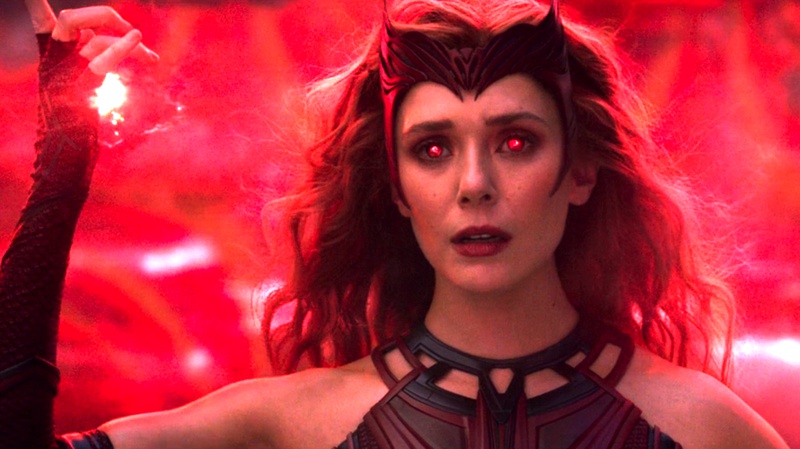
THE SCARLET WITCH
Sitcoms were obviously a huge part of the DNA and very core of the show. The rest of that core was taken up by none other than Wanda Maximoff. Without a doubt, she was the center of everything. Her personal journey, and the grief that she is dealing with, were the true focus of the show. WandaVision gave us an opportunity to dive into Wanda’s character in a way simply not possible before this, and it truly did a remarkable job.
While the lack of character work was a flaw towards the beginning of the show (more on that in a bit), it certainly wasn’t by the end. No, by the end, Wanda Maximoff had become one of the strongest and most intricate characters remaining in the MCU. The portrayal of grief, and how one deals with trauma, was the strongest element of the show.
Let’s face it, Elizabeth Olsen is a powerhouse of an actress. The love and soul that she put into this performance was incredible and shines through at every moment. From her switches for each era (down to the subtle mannerisms, to her emotionally damaged psyche), Olsen was absolutely at the top of her game and gave us some of the best Wanda/Scarlet Witch moments to date.
Speaking of Scarlet Witch, that name-drop—and the information leading up to it—was phenomenal. It just felt so damn good to hear it finally said after all these years. Then taking it a step further, it’s awesome to finally see Wanda truly show off the power that she can control. As made fairly clear in the finale, The Scarlet Witch is one of the most powerful beings in existence (sorry Captain Marvel).
The show has positioned her in a very interesting way by the end of it. While it’s kind of off-putting that Wanda got to walk off into the sunset after the terrible things that she did to Westview, she now knows how powerful she is. Someone that powerful, driven by grief and loss, can shape up to be truly dangerous. And if that post-credits scene is any indication, and saving her children is Wanda’s priority, then there’s nothing that will stop her.
Just like how nothing stopped her from achieving her perfect family life in Westview, even if it was unintentional. Seeing both Wanda and Vision live this dream suburban life was nothing short of cathartic, especially after everything the two have been through. It was great that Marvel took this opportunity to also introduce two future superheroes: Tommy and Billy Maximoff. While the performances from the child actors behind Tommy and Billy weren’t the best, we can rest easy knowing that the next time we see them, they will likely be fully grown-up adults. I mean the Young Avengers may be young, but they aren’t quite children. The real question is how will we ever see them again in the first place?
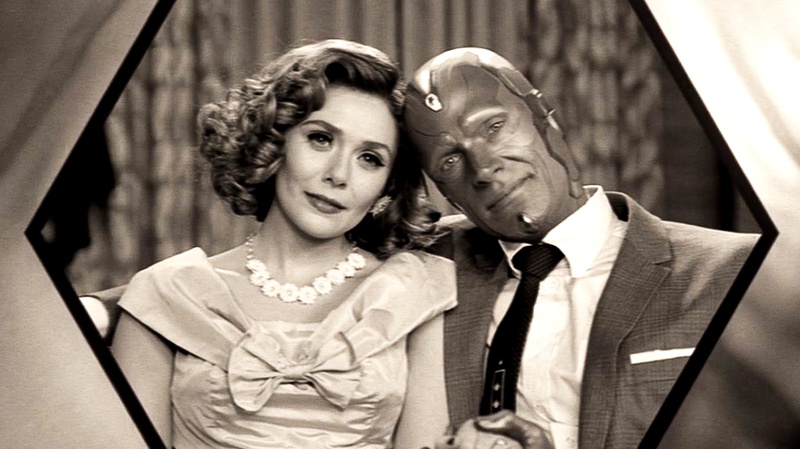
VISION, THE FAMILY MAN
While there was already a lot going on with Wanda, the key catalyst to everything happening was Vision himself. Dying twice by the hands of Thanos wasn’t enough to keep him away for long—and die-hard fans couldn’t be any happier. Not only is Vision a favorite, but he has never quite been given enough spotlight. So seeing him take center stage alongside Wanda in a television series was fantastic to see.
Paul Bettany is a phenomenal actor and has a range that he simply hasn’t been able to show on screen within the MCU. That all changed here, as we saw Vision in countless new ways. It’s easy to rant and rave about Elizabeth Olsen’s performance throughout, but Bettany soars just as high and remains alongside her at every moment.
Easily the strongest sequence of the entire show was in Episode 5 when Vision is confronting Wanda. The air was charged with emotion, ready to explode—it was intense, and phenomenally performed. Seeing Vision in that state, displaying those emotions, was jarring. So impactful, that it could easily rank up there in favorite MCU moments of all time. More than that though, the scene made perfect use of the formula, especially within the context it’s being used. Using the credits to try and shut down Vision’s conversation was flawless, making that moment where we didn’t actually cut to credits hit like a train.
It was also great to truly see The Vision in action. Surprisingly, to date, we haven’t really ever seen Vision at his peak. There were bits and pieces in Avengers: Age of Ultron, but in Captain America: Civil War he was a passive player, and then in Avengers: Infinity War he was grievously injured. Here though, not only did we see Vision at his most vulnerable, but also at his strongest. The fight between White Vision and himself was a sight to behold. A true comic book-inspired action sequence.
White Vision’s introduction was awesome and gave another outlet for Paul Bettany to once again do something entirely different. The philosophical solution to The Visions’ physical altercation was a fantastic choice that truly lives up to the character fans have come to know. One of the most disappointing aspects of the finale however was how little closure he received. The MCU will continue chugging along, and there will be a place for him, but nonetheless, White Vision still deserved another scene or two to let us know where he stands.
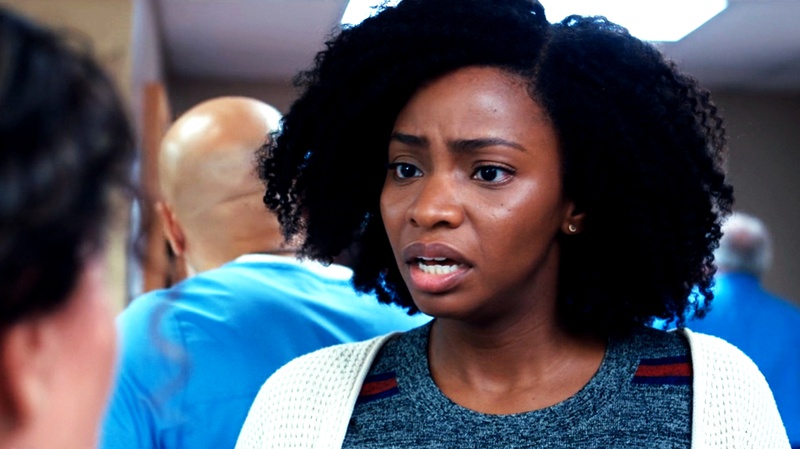
LIEUTENANT TROUBLE
Then there is Monica. Look, she’s great—as is the actress and the fact that we have a new African-American female superhero on our hands. However, it's hard to know if WandaVision was the best place to tell her story. Within the context of everything happening with Wanda, Monica seemed out of place—tacked on even. This was felt in the finale when the show would jump back to her and Ralph. Every time it was a sudden break in the episode's momentum, in the midst of the monumental payoff going on outside of Ralph’s window, for us to spend time doing nothing of importance.
Somehow with even nine episodes, her journey to becoming a hero felt...rushed. The story was very much concerned about Wanda most of the time, and when Monica was in the picture, it was often far more focused on giving the audience information rather than letting the character breathe. While her scene during the blip was fantastic (a height that the storyline outside of Wanda never reached again), it didn’t change the fact that she never truly felt important to Westview and Wanda’s journey. Monica simply deserved more time for the development that she received than WandaVision had to offer her.
The biggest example of this disconnect was when she had her big scene going through the Hex's barrier. A visualization of Monica overcoming her grief. Yet, it was hard to care. At least not as much as they seemingly wanted viewers to care. We had hardly spent any time with the character—no connection had really been formed yet.
As an additional note, Monica’s grief stemmed from the loss of her mother, yet there wasn't a single scene between Monica and her mother. Some may think it isn’t necessary, but its inclusion would have meant the world with how little screen time Monica’s arc was given. Here's to hoping that the next story she is in (seemingly Secret Invasion?) allows the character to breathe. That, alongside making sure she feels like a very important part of the story. If you were to take Monica out of WandaVision entirely, the story would have unfolded almost the same.
One is likely to be quick to cry out that Jimmy and Darcy were both in the same situation, yet there's no criticism for them. That’s because they weren’t getting major character development—mind you that’s not bad. In fact, that better suited the role that the three of them had within the show. As an example, it could have been the better move to have Monica not get her powers at all in the show—or at least not show them or have them teased until the end. This would have allowed more time for us to get to know Monica, without the weight of those huge character beats for her that arrived and left way too fast.
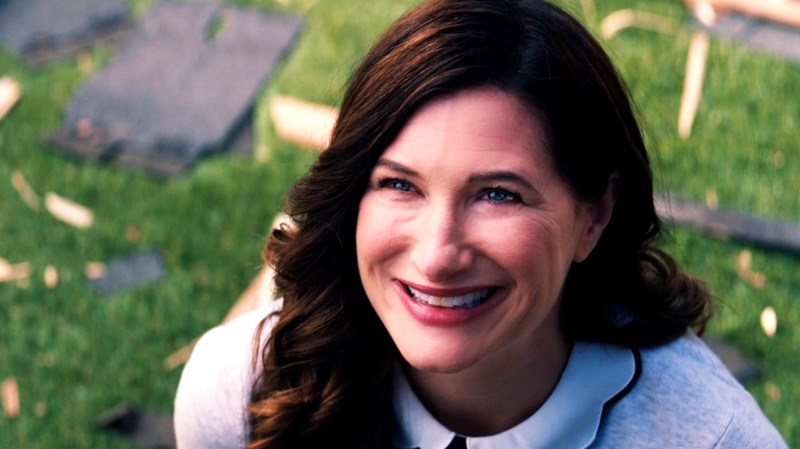
WHO WAS IT ALL ALONG?
On the villain front, let's just get Hayward out of the way: he was a standard villain, acting as simply fodder to get White Vision on screen. While yes, he may have purposely planted the entire idea of Westview in Wanda’s head, that plot point was never compounded on, so he stayed an aggressively mediocre character.
In all honesty, the case could easily be made that Wanda was the true villain of the show. She created the Hex, she mind-controlled everyone, and she kept them captive even when she realized what was happening. That Doesn’t sound all that heroic. These developments really added several deep and intricate layers to the character that truly continued to make Wanda a fantastic and endlessly intriguing part of the MCU. While those aspects should have held more weight to the story, the villainous reveal went to none other than Agatha Harkness.
As mentioned in previous reviews, Kathryn Hahn was incredible, and a flawless pick. Using her as a gateway to the witchcraft lore of the Marvel universe was a great choice. She played very well off of Wanda, serving to be a formidable opponent to Ms. Maximoff more so in intellect than in raw power. I mean there’s not much she was going to be able to do to overthrow the person who might end the world one day. It's exciting knowing that they left the door wide open for her return. Though the question has to be asked: where was she the last ten years?
While Marvel did many things masterfully in their first television outing, there’s still some work to be done. Key among them would be pacing. The show started off extremely slowly, and fans basically had no idea what they were watching. It wasn’t until the very end of episode 3 that the first real story beat was finally put forth. Some viewers had already jumped ship before getting there though—noting that they had no idea what they were watching, having nothing to keep them glued to the screen.
Here’s the thing. A slow mystery without any information can work. Shows like LOST and The Leftovers have proven this, as well as many others. The plot doesn’t necessarily need to be moving forward to be engaging. There is however something you need alongside it all—something that the first few episodes didn’t have: character work.
Until the very end of the third episode, there was little to no character work to be seen. Pair that with no information about what was being witnessed for two weeks, and that makes a frustrating concoction. So while it remained entertaining due to the fan's connection to the MCU and its characters, alongside a love for the uniqueness of this new project, it can easily be seen how many would fall off. Now yes, in hindsight, obviously there were emotional and personal reasons why Wanda retreated into that sitcom space. That however doesn’t change those earlier episodes standing on their own.
After that, the show still struggled to recover its pacing. While it was exciting to finally start getting answers come Episode 4, it was done in a manner that was almost entirely exposition. Besides the simple notion of getting more context to the Hex, the episode itself wasn’t all too engaging. It was simply the information given that garnered most of the interest—but in turn, lent to mostly wooden performances trying to get out as much information as possible. It wasn’t until Episode 5 that the show started to really get a handle on its pacing. Not that WandaVision didn’t falter after that, as both Episodes 7 and 9 held some questionable clunkiness at times.
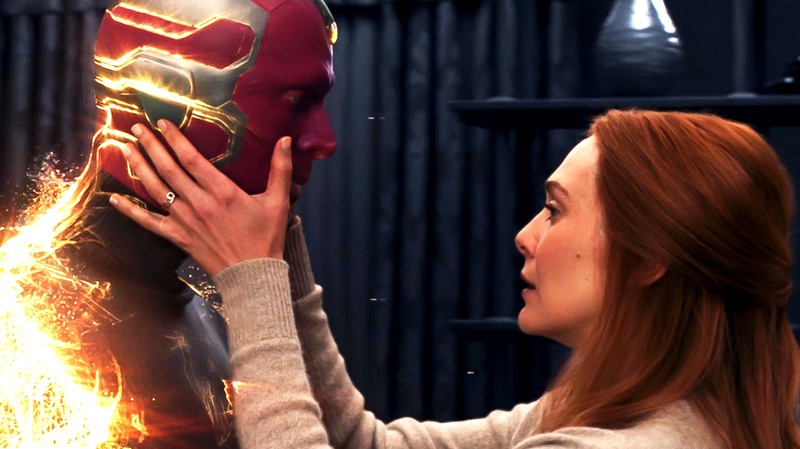
SAYING GOODBYE
So was WandaVision a story worth telling? Absolutely. Fans were given a story that truly let them get to know the two titular characters in a way not possible before. Emotional beats were nailed that are not seen nearly enough within the movie sphere. Something that is admittedly easier to achieve within the landscape of television given its very nature. As great as all of that was though, not everything landed. Monica deserved more time, Hayward was mediocrity personified, and wonky pacing/structure was present throughout. While audiences know where they will see Wanda next, Vision’s future is very much shrouded in fog. But as he wisely said in his goodbye, "Who knows what he may be next."
BONUS NOTE
For many, it’s important to note that just because the show didn’t fulfill any of those huge fan theories (looking at you Mephisto) that may have been rooted for or expected, it shouldn't—and doesn’t—count against the show. What was delivered is the story the creators set out to tell. While there are certainly flaws within it to be noted, one can’t hold it against them that they chose this story instead of say one where Mephisto is manipulating Wanda and using fragments of his soul to create her children. Some fans would have thought that the connection to Doctor Strange In the Multiverse of Madness would have been far more overt—but alas that’s not the direction that was chosen.

No comments: